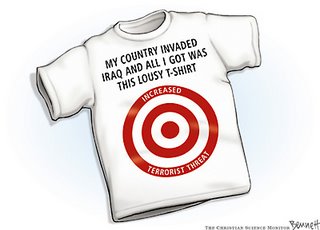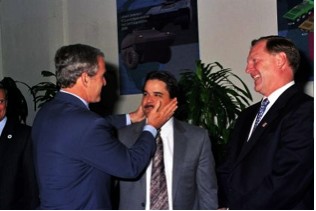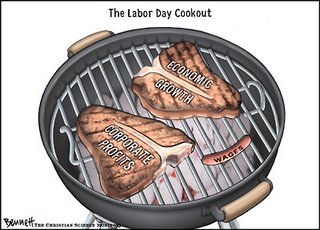Fatal Touch
Over at the New York Review of Books Joan Didion produces a chilling portrait of Dick Cheney:
In the early summer of 2000, flying home with his daughter Mary from a hunting trip, Cheney, then five years into his job at Halliburton, a period for which he had collected $44 million (plus deferments and stock options) and during which the Halliburton subsidiary Brown & Root had billed the United States $2 billion for services in Bosnia and Kosovo, told Mary that Joe Allbaugh, the national campaign manager of Bush's 2000 campaign, had asked him to consider being Bush's running mate. In July 2000, after conducting a search for another candidate and detailing the reasons why he himself would be a bad choice ('Knowing my dad, I'm sure he didn't hold anything back as he laid out the disadvantages of selecting him as the nominee'), in other words assuring himself carte blanche, Cheney agreed to join the ticket.
In February 2001, Joe Allbaugh, whose previous experience was running the governor's office for Bush in Texas, became head of FEMA, where he hired Michael D. ('Brownie, you're doing a heckuva job') Brown. In December 2002, Allbaugh announced that he was resigning from FEMA, leaving Brown in charge while he himself founded New Bridge Strategies, LLC, 'a unique company,' according to its Web site, 'that was created specifically with the aim of assisting clients to evaluate and take advantage of business opportunities in the Middle East following the conclusion of the US-led war in Iraq.'
This was the US-led war in Iraq that had not then yet begun.
 Click to enlarge
Click to enlarge Click to enlarge
Click to enlarge
 Click to enlarge
Click to enlarge
 Click to enlarge
Click to enlarge Click to enlarge
Click to enlarge


